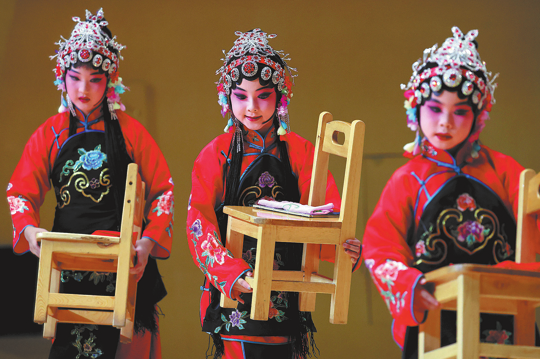Mainland, Taiwan experts highlight shared cultural roots


BEIJING -- Experts from the Chinese mainland and Taiwan highlighted the shared cultural roots of folk beliefs across the Taiwan Strait at a seminar held in Beijing on Monday.
Many folk beliefs in Taiwan, such as the belief in the sea goddess Mazu, originated from the mainland, particularly the coastal region of Fujian province, said Professor Chen Jinguo of the School of Philosophy and Religious Studies, Minzu University of China, at the seminar.
"Through a careful study of rituals and customs in everyday life across the Strait, we can gain a profound understanding of how the two sides are intimately connected," Chen said.
The folk beliefs are a symbol of the continuity and integrity of the Chinese civilization, and have served as a bridge for cross-Strait exchanges and integration, he said.
Taiwan-based writer Yang Du explained how local folk beliefs have adapted to the changes in Taiwan society and responded to the challenges from industrialization and modernization.
Shared beliefs, cultural traditions and values will bring people on both sides of the Strait together, and folk beliefs will play a constructive role in boosting exchanges, Yang said.
- Beijing accelerates renovation of old residential buildings
- Guangzhou optimizes rail services for 15th National Games, Paralympics
- New sci-tech innovation platforms launched in Xinjiang
- Thai students document Wuhan life in photo contest
- Basha Miao village glows in early winter's embrace
- Fengxian achieves leapfrog economic growth through new drivers




































